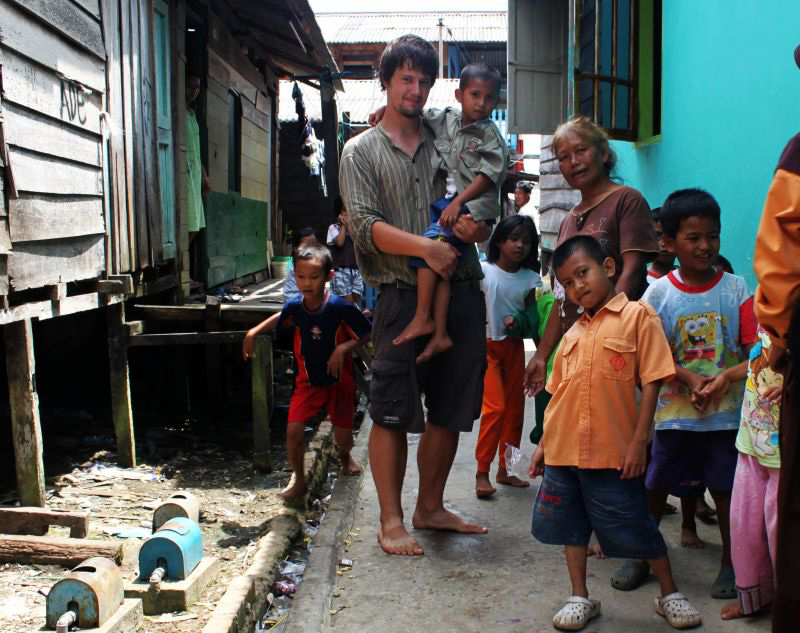Filmmaker Michal Gálik: Anyone Can Change the World
Michal Gálik is a young Slovak documentary filmmaker, best known for the film Zelená Poušť (Green Desert), a documentary which introduced the truth behind the palm oil industry to a wider Czech and Slovak audience. Palm oil is a raw ingredient added to a great variety of products due its affordability. Michal Gálik’s shots of burning Indonesian forests, huge fields of palm oil planted as a monoculture, and especially the sad faces of the surviving orangutans as they search for food in the inhospitable new plantations, caused a large-scale Czech-Slovak consumer boycott against palm oil. Michal, as a graduate of the Faculty of Science of Charles University in Prague, is a born adventurer, and successfully combines the topic of ecology with his travelogues. His documentaries have a significant influence on the perception of current global problems. He believes that even an individual can change the world for the better. From this perspective he documented the engaging true story of a Cameroon Man who plants trees, for example. In 2017, Michal won a prestigious travel competition for Sygic Travel and since then he has been shooting 360° videos on his travels. The last place he visited and managed to shoot was Ecuador, at the time of the outbreak of the Covid-19 pandemic. After returning to Slovakia, Michal realised how lucky he was to have returned home safely from Latin America.
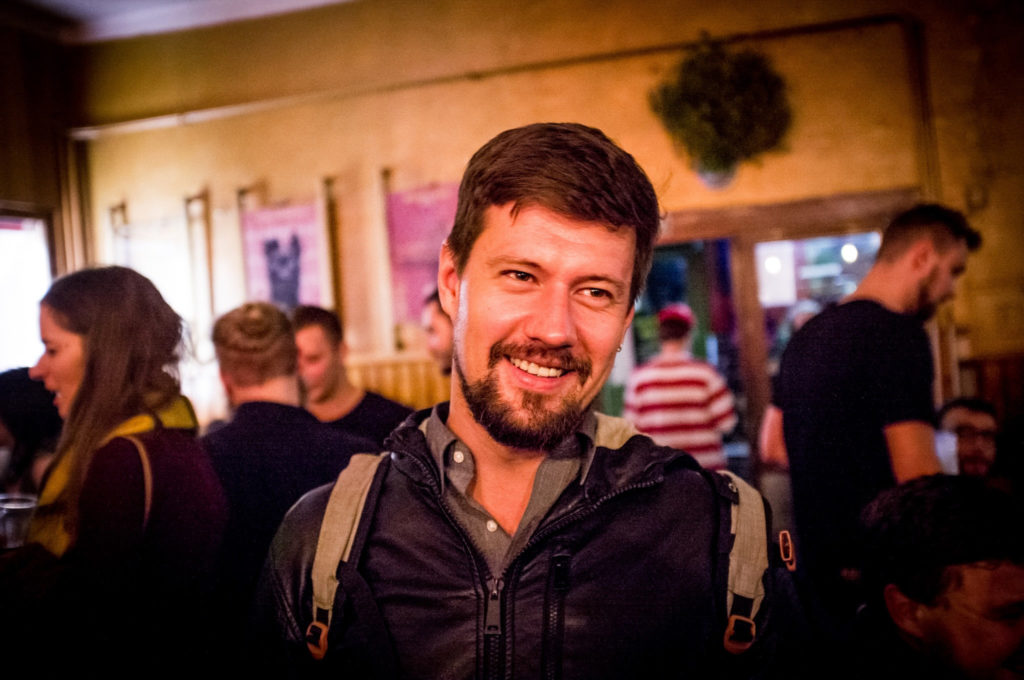
Michal, you returned from Ecuador in April, and as was evident from your Facebook profile, the way back home to Slovakia was not easy. At times, it seemed that you wouldn’t even get home because of the coronavirus… What were you filming in Ecuador and how did it all change with the outbreak of the pandemic?
At the beginning of January 2020, my girlfriend and I flew to Colombia, then to Ecuador, from where we wanted to continue on to Peru and Bolivia. We planned to stay in Latin America for four months. We were attracted to travel and adventure, but the primary reason for our trip was my work. I was continuing my project of shooting 360° videos that are designed for virtual reality – the viewer wears virtual glasses and finds themselves exactly in the places I shoot. This particular project was dedicated to American retirement homes, to enable ‘travelling’ for their residents, for example to Colombia or Ecuador.
The project was going according to plan until the coronavirus crisis hit. We waited a long time to see how the situation would develop and, in any case, we thought that it would not be as serious as it was. However, the circumstances reached a stage when the coronavirus began to spread very rapidly throughout Latin America. The governments of Latin American countries began introducing measures so rapidly that it made any movement or travel impossible. This happened in Ecuador too. So, at the moment at which we were affected by the government’s measures, we had to cancel the filming plan and our new goal was to get back home as soon as possible.
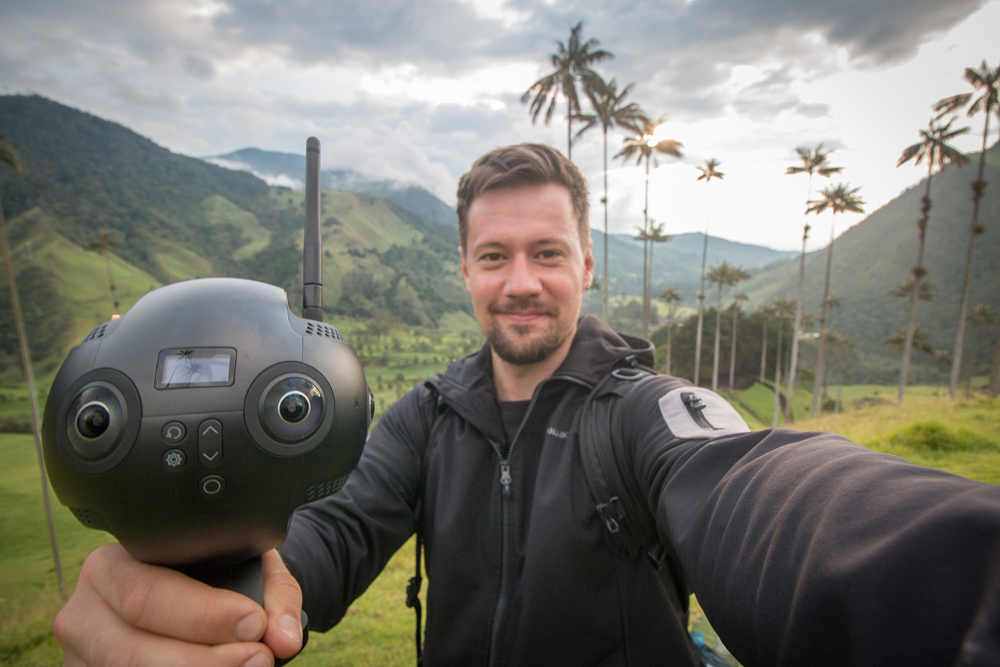
Was Ecuador affected by coronavirus seriously at the time of your departure?
Of course, we monitored the whole situation all the time, as we were in contact with our family and friends in Slovakia and in the Czech Republic. At that point, both these countries were far more affected than, for example, Ecuador, in terms of government regulations. Latin America was still untouched: it was essentially the last continent that the virus was yet to reach.
Also, there wasn’t very much information about how the coronavirus outbreak was developing at that point, so we believed the general reports that the virus would not spread in a warm environment. We simply hoped that the pandemic would not affect Ecuador. However, this turned out to be nonsense, because the virus spreads even in a warm climate. So, what was happening in Slovakia and the Czech Republic began to happen very quickly in Ecuador too.
Initially, Ecuador reported only a few people infected with coronavirus, but after a while the number of sick people began to increase significantly. As a result, the Ecuadorian government ordered the closure of the borders overnight, outlawed traffic in cities, flights to Europe, and going out on the streets. These measures came really fast and for us as travellers, it was quite challenging, because we had no idea how long it would all last.
How difficult did it make it for you to return home?
It affected us at the point when we decided to go home – the flight was no longer available. Nevertheless, we tried to get home by our force of will. However, the flights were not available, the tickets could not be bought, so we tried to contact the Slovakian embassy.
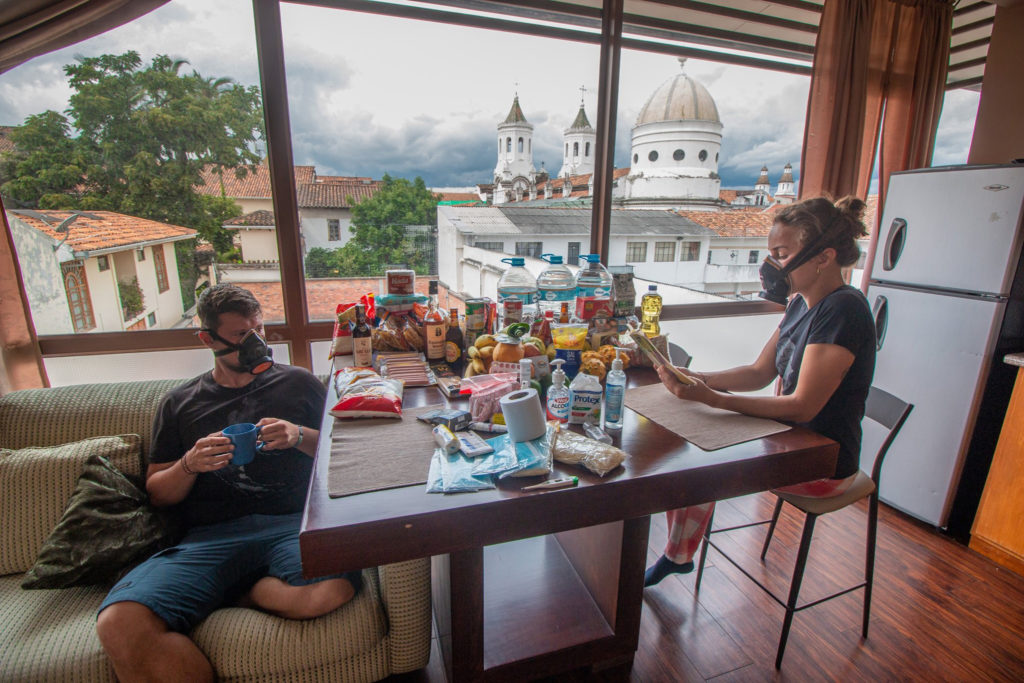
How did the Slovak embassy treat you as a Slovak? Was it helpful?
Unfortunately, the Slovak embassy, even though it tried, was not able to help us. For example, the embassy did not have up-to-date information, nor did communication take place as I would expect in such an unprecedented situation. It did not help us. Therefore, we had to try to get home our own way.
However, the problem was that we could not get from the city where we were staying to the airport (due to a ban on intercity transport), and another problem was that we could not get onto any flight that was departing from Ecuador. All the flights were hopelessly full, it was not possible to buy tickets and the airlines’ websites were crashing. At that moment, we felt so hopeless. So, the first few days were really challenging because we could only rely on ourselves.
How did you get the last seats on the plane to Europe?
I followed various Ecuadorian websites and other sites that detect aircraft movements, such as ‘flightradar24’, to find out which airlines were still flying from Ecuador. From this, I started to follow three airlines and I waited for a place, but unfortunately all the flights were still full. Over time, only one airline remained and the situation became very unpredictable, as this company was theoretically supposed to fly every day, but in practice only every third flight took place. In addition, the Ecuadorian government banned planes from landing. For example, Iberia sent a plane to Ecuador to help Spaniards, but the mayor of Guayaquili, the largest city and also the city most affected by the coronavirus, banned the plane from landing. At some point, the rules and regulations stopped working as they should and no one really knew if the planes were flying or not. So, there was chaos in Ecuador.
I continued to watch the situation and after a week two seats appeared on a flight with the Dutch operator KLM from Ecuador to Amsterdam. I did not hesitate at all and bought the tickets, even though we did not really know until the very last moment if the plane would fly – and we did not know that it would take off even if we boarded the plane! No one, including the airlines and embassies, knew anything.
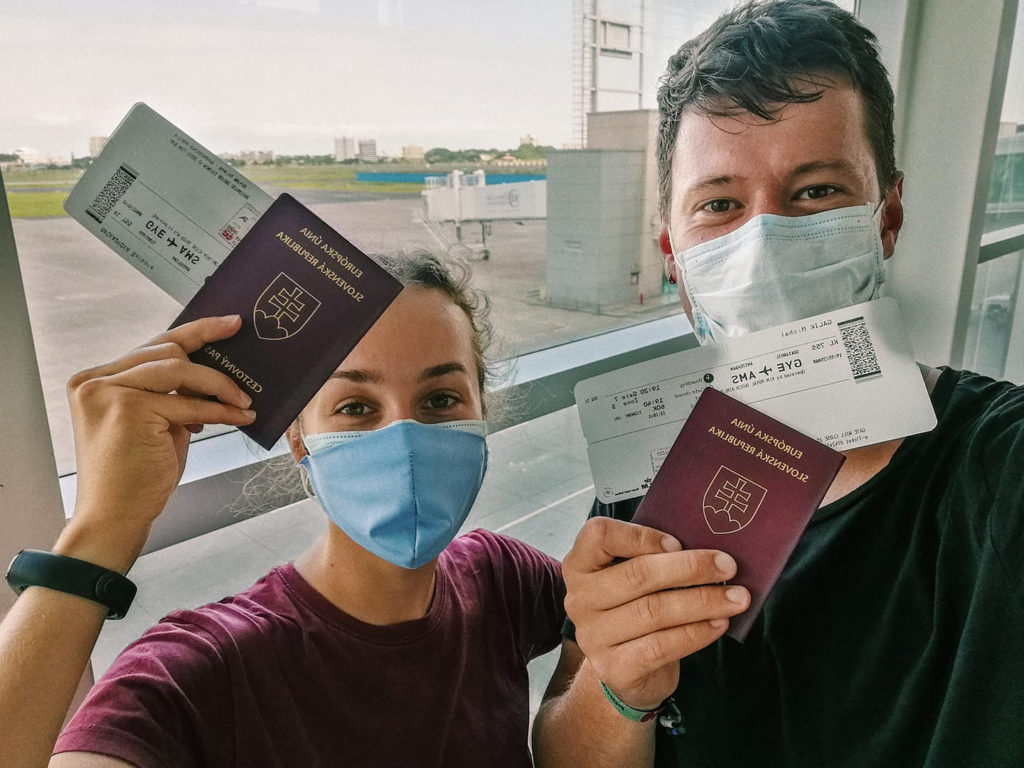
What was the feeling when you returned to Slovakia?
It was a wonderful feeling to be home! A really big relief! But I felt also a lot of fatigue and I needed to relax and take away all the stress. It was just an amazing feeling to know you were back at home at a time when a pandemic had hit the world. As for coronavirus, I was not afraid for myself. I do not suffer from any illnesses and I think that I would cope with the disease without any serious complications. What I really was afraid of was how much the crisis would affect the world and society, or a scenario where we had to stay in Ecuador for half a year or a year, and that the authorities would turn against us. For example, we were kicked out of our hotel without a reason, just because the owner decided that he did not want to accommodate tourists anymore – he said, “the virus was brought to Ecuador by tourists!” So, we were suddenly on the street! We were also turned down at another hotel and it was very difficult to find any accommodation at all.
How did you cope with quarantine in Slovakia? It must have been a big change after several months of travelling. Did you use the time for some post-production and can people look forward to some more of your documentaries?
Definitely, yes! To be honest, the first few days were mainly about relaxation. I needed to get some rest, but after a few more days I started processing the material that I had shot. There will definitely be more outputs from Latin America, so not just 360° videos. For example, we also made reports for national Czech television. But there is a lot of work to do on post-production and film cutting, so I am not worried that I will be bored over this time.
Many people know you more as a traveller, but you have a degree in Zoology. What led you to study that subject?
From my early years, I loved nature and science. I wanted to explore everything about the world around me. After high school, however, I felt that this was not the end of my journey; I wanted to continue with my studies more seriously. I opted for Biology, because it is the science of the living environment. It is a wonderful science that fulfilled me and I really enjoyed my university studies. Moreover, I always imagined how I would be working outside, somewhere in nature, and for that reason, Biology was the perfect choice.
Later, I chose Zoology, although it must be said that I was not completely suited to the career of ‘academic scientist’. Rather, I started to be more and more attracted to the conservation of nature, and after my studies I started to focus also on documentary filmmaking. So, nowadays, I am trying to combine the two. I am spending a lot of time in nature and I am trying to contribute to its protection, for example through using my camera.
You are the author of the very successful documentary Zelená Poušť (Green Desert), which shows the devastating effects of the palm oil industry on the environment. Why did you choose this topic?
I must admit that this idea did not come from me, but from the Czech primatologist Stanislav Lhota, who has been working in Indonesia for a long time. We met when I was studying my bachelor’s degree, when I was 21 years old. I wanted to contribute somehow to the protection of the global environment, so I contacted him. At that time, I was also enjoying shooting with my camera, so I suggested to him that we could make a film about this serious issue.
Stanislav Lhota was really excited, so a few months later we met in Indonesia and started working together on my very first documentary. Initially, we thought that we would document all the environmental problems that Indonesia, and especially Borneo, is facing, such as coal mining, the paper industry, acacia cultivation, the palm industry and illegal fishing. However, it turned out that today the biggest problem is palm oil being planted as a monoculture. So we focused only on that issue and this was a good step, because the issue is still relevant, and, above all, needs a lot of global attention.
Do you still remember what surprised you the most during the documentary work in Indonesia? Sure, you had some idea about the situation in Indonesia, but was there anything you didn’t expect that you captured in the documentary?
I didn’t know much about Borneo, but from my childhood I imagined it as a wild island covered in jungle, full of orangutans and wildlife. I must therefore admit that the biggest shock for me was when I saw Borneo in these modern times. My picture of Borneo turned out to be very naïve. Borneo, of course, did once look like that – an island covered in wildlife with orangutans, but when you drive from the airport for several long hours through only palm oil plantations or you see the huge exporting ships full of timber, you realise that the island is another place now…
So, the hardest part for me was realising the extent to which we humans are devastating Borneo. I was surprised by the enormous degree to which nature is being plundered. As a person from Slovakia, I am used to living in a relatively small landscape, and therefore, even though we are also devastating nature, the devastation takes place on a much smaller scale. In contrast, there are gigantic plantations in Borneo, which can easily reach a third of the size of the Slovak Republic. This fact was really shocking to me.
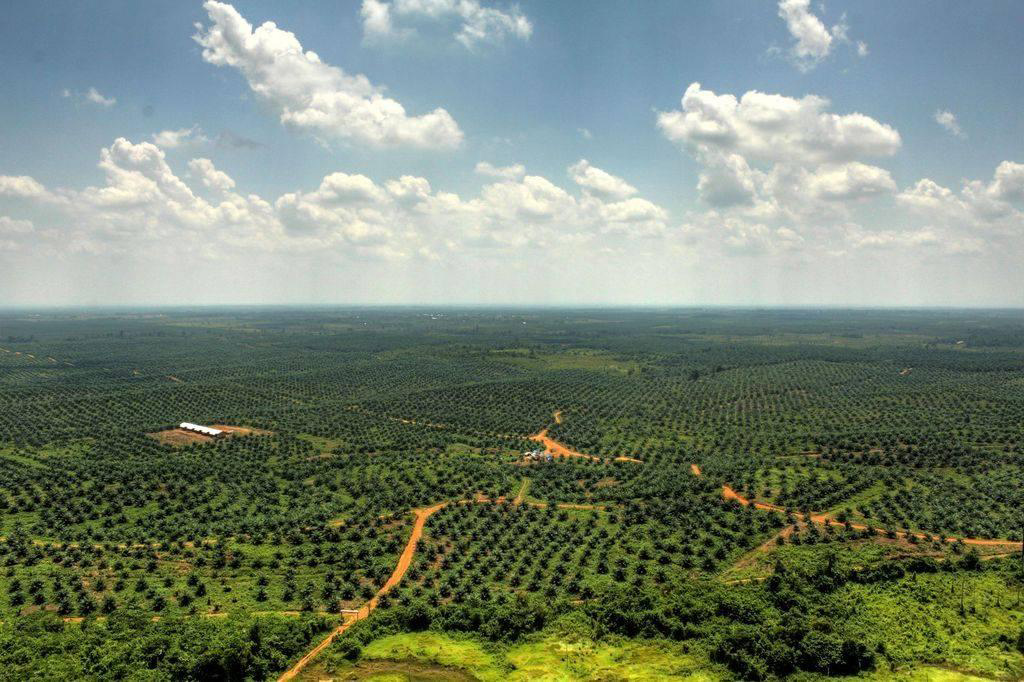
The moment to have most deeply touched my heart was when I visited the orangutan rescue centre. Among the orangutans were ones who had been confiscated from the black market, to protect them from being sold as pets. Alongside those orangutans were those searching for food in the fields of palm trees. This is, of course, a huge problem for the Indonesian government and the palm oil industry. They don’t know what to do with those orangutans, who are losing their native habitat.
We arrived at the rescue centre and I came across a place with several cages; in each was an orangutan. I came to them and they watched me with their sad eyes. At that moment, I did not see much difference between ‘them’ and ‘us’. I found it very sad that they were losing their homes. This affected me really deeply, and I realised that it makes sense to fight against the palm oil industry. It brought me to my senses and I said to myself: “I have to finish the documentary, so people know what is going on!” To this day, that remains a very intense and sad experience for me.
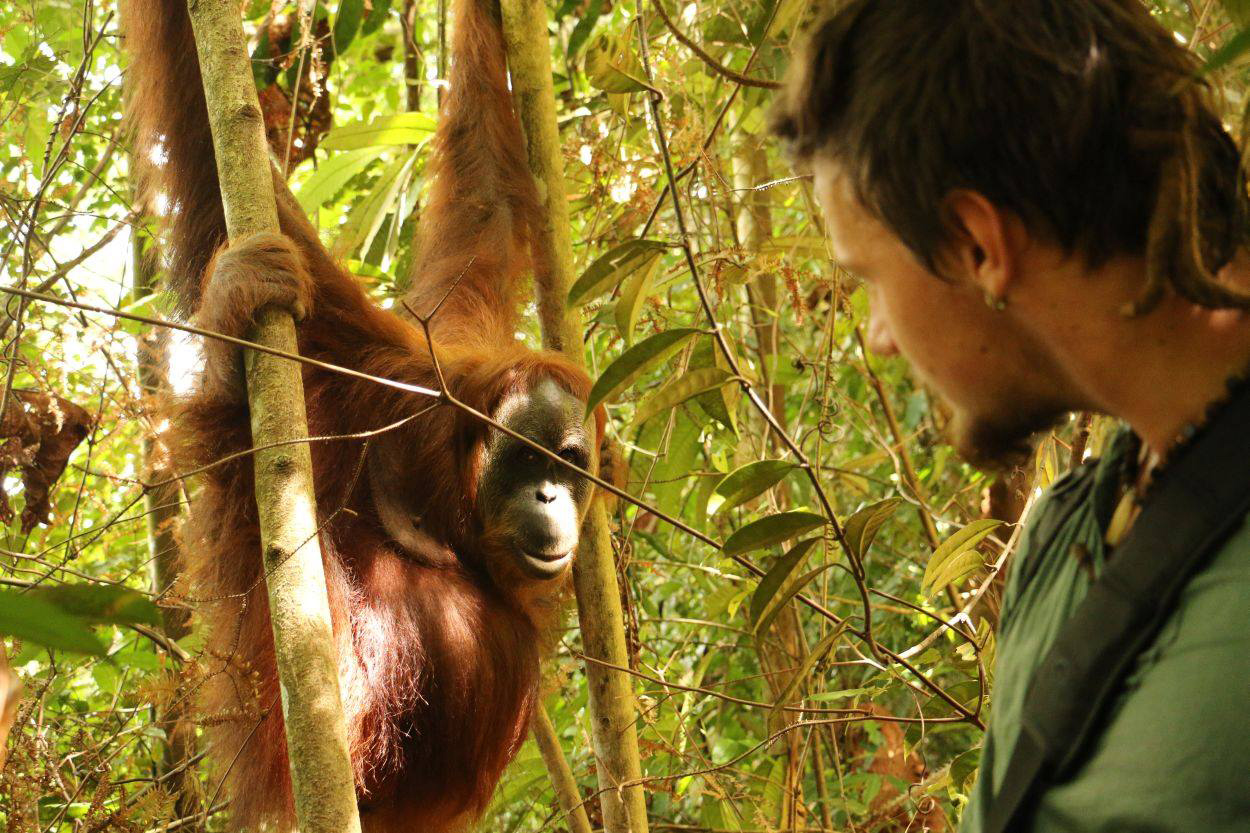
Did you expect such a huge positive feedback and interest from the Czech and Slovak public about the problematic palm oil industry as shown in your documentary?
I have to admit that I spent about a year shooting and editing the film. After returning from Indonesia, I gradually started editing the footage. It was my first film, so of course I had to learn how to make it. After many months and nights spent editing, I began to doubt whether I was doing anything that would interest the public.
But the documentary, Zelená Poušť (Green Desert) began to spread very quickly through the Czech and Slovak Republics, and was also screened by non-profit organisations and universities. I was very surprised and it was a tremendously positive experience for me, because it’s not really a positive film… The documentary pointed out that we are all responsible for what is happening on the other side of the planet, for plundering forests and killing orangutans.
Of course, many people won’t watch films like this, because it is very sad. That’s why I was so surprised that people were interested in it and moreover, that they spread the news of it further.
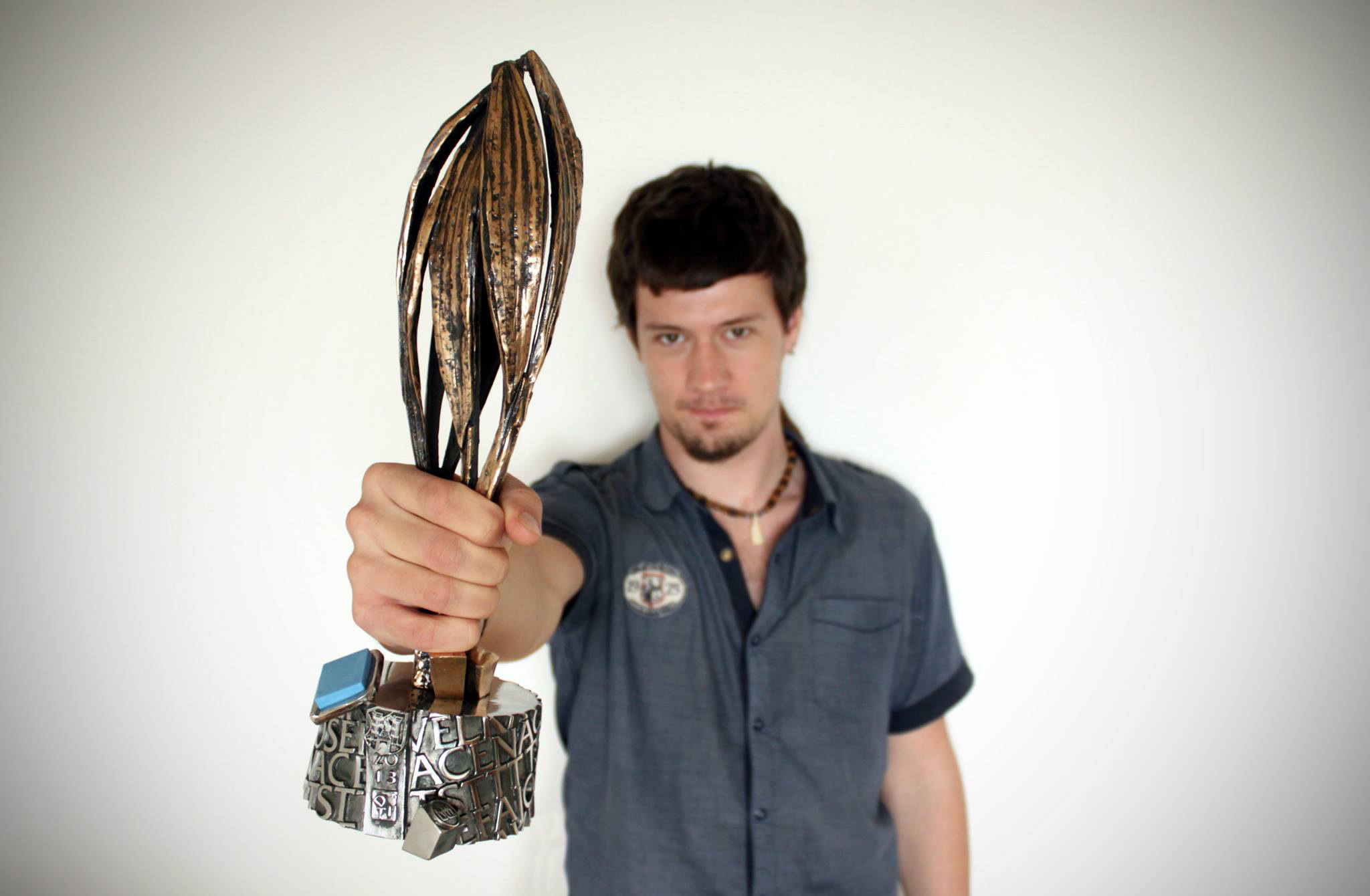
Do you see any major shift since you started filmed this documentary? Has our approach, as consumers, changed?
Definitely, yes. It has changed a lot. For example, before I travelled to Borneo, I searched for information about the issue of palm oil plantations. There was basically no article in the Czech or Slovakian media that addressed this topic. I think there was one translation from English to Czech by Stanislav Lhota, but overall, there was very little information. Nobody knew about the problem and nobody was talking about it.
Much has changed since Zelená Poušť was premiered in 2012. Firstly, palm oil began to be a topic in the media and was written about in countless articles. Now, I think palm oil is known as a very bad thing, as an ingredient that you should avoid. In addition, several organisations have been set up to address this issue, such as the Czech non-profit organisation Palm Oil Watch International.
There has also been a lot of pressure on companies and food producers. They now provide the full list of ingredients and whether or not the product contains palm oil, and if so, whether it is certified sustainable palm oil. That, I think, is a really huge shift. It is really clear that consumers have started to put more pressure on manufacturers and companies and that we have, as Czech and Slovakian citizens, acted responsibly. This is a great success, but it does not mean that we have won.
What about you, do you read the list of ingredients on the packaging and do you avoid products containing palm oil?
Absolutely, yes. When I returned from Indonesia, I started reading all the information about the composition of food. I began to notice that palm oil was everywhere! I was horrified at how wide a spectrum of food and products contain it. It also affected me in the way I started to avoid not only products containing palm oil, but also all packaged foods in general, including sweets, crisps and ready meals. That’s why I try to buy unprocessed things in the grocery store, such as rice, vegetables and fruit, for healthy cooking.
Of course, it’s not easy. Sometimes it may happen that I buy something and only afterwards I find out that it contained palm oil. On the other hand, nowadays it is much easier than before and some manufacturers and brands have even stopped using palm oil entirely.
When was the idea for your next documentary, Muž, který sází stormy (The Man Who Planted Trees), born? How did you find out about the village of Big Babanki?
That was when I finished Zelená Poušť and I met another interesting person. This was Martin Mikeš, who went to Cameroon to study birds with ornithologists. In time, he met local people and promised them he would build a school. I really liked the idea, so we went to Cameroon with another friend, Artur F. Sniegon, who is dedicated to the protection of elephants. We all decided to make a film there, among other things.
Martin introduced me to his Cameroonian friend Ernest, an elderly gentleman who has been planting trees for many, many years to save his village, Big Babanki, from drought and soil erosion. I liked the idea that Ernest was trying to make people appreciate the forest more and so we eventually decided that the film would be about Ernest. The story of this documentary is much more positive than Zelená Poušť and also more motivating, as it spreads the message that even an individual can change the world.
How would you describe Cameroon and the local people?
Cameroon was my first experience of Africa and I must say that I immediately fell in love with this continent. Few people know that Cameroon is a beautiful country that stretches from the Sahara to the Congo Basin, so from north to south it gradually changes. From desert, through the savannah, and then waterfalls and baobabs appear, until it passes into the dense tropical forests where gorillas and chimpanzees live. So, it is a very beautiful and diverse landscape. The people of Cameroon are very nice, which could be said about the whole continent. In some ways the people there live more complicated lives than us, but also simpler, in the way that they live more in the present moment and smile more, and that’s what I like.
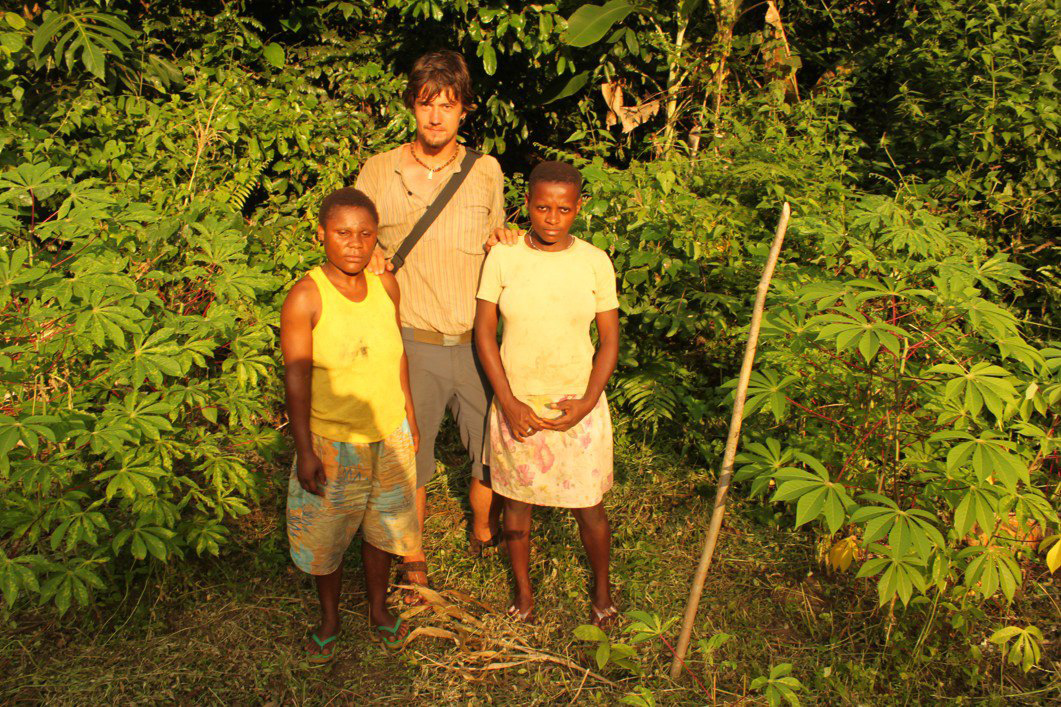
In 2017, you won a prestigious travel competition, ‘A dream job’, so you could travel and shoot videos for Sygic Travel for a whole year. How did you find out about this opportunity?
Africa touched my heart and after my first stay in Cameroon, I knew I must to go back there. In the meantime, I was travelling in India and Indonesia, but as soon as there was the opportunity, I packed my backpack and set off by bike from Ethiopia to Uganda, than through Rwanda and Congo. In the end, I spent half a year in Africa.
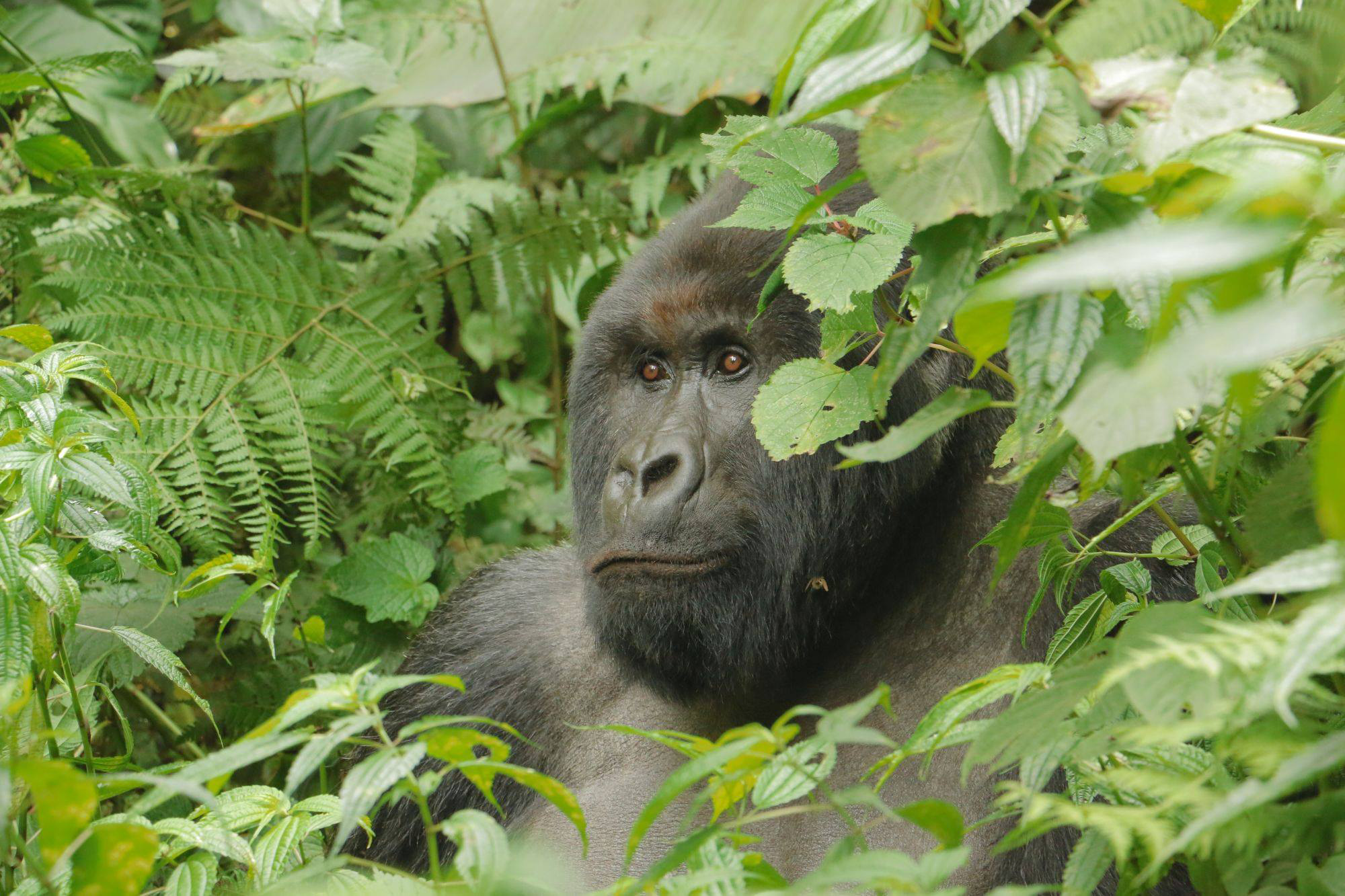
When I was in Uganda, my friends and family sent me a link to ‘A dream job’, a competition that had begun to spread on Slovak websites. At first I didn’t pay attention to it because I was still in Uganda, I didn’t even have internet access, and, most importantly, I was enjoying travelling. Eventually, when the link was sent to me by more people, I told myself that I should try it. I entered the competition – and I won it! This was so amazing, because right after I returned home from Africa, I started working for Sygic Travel. Thanks to this job, I was able to travel and shoot 360° videos for a whole year.
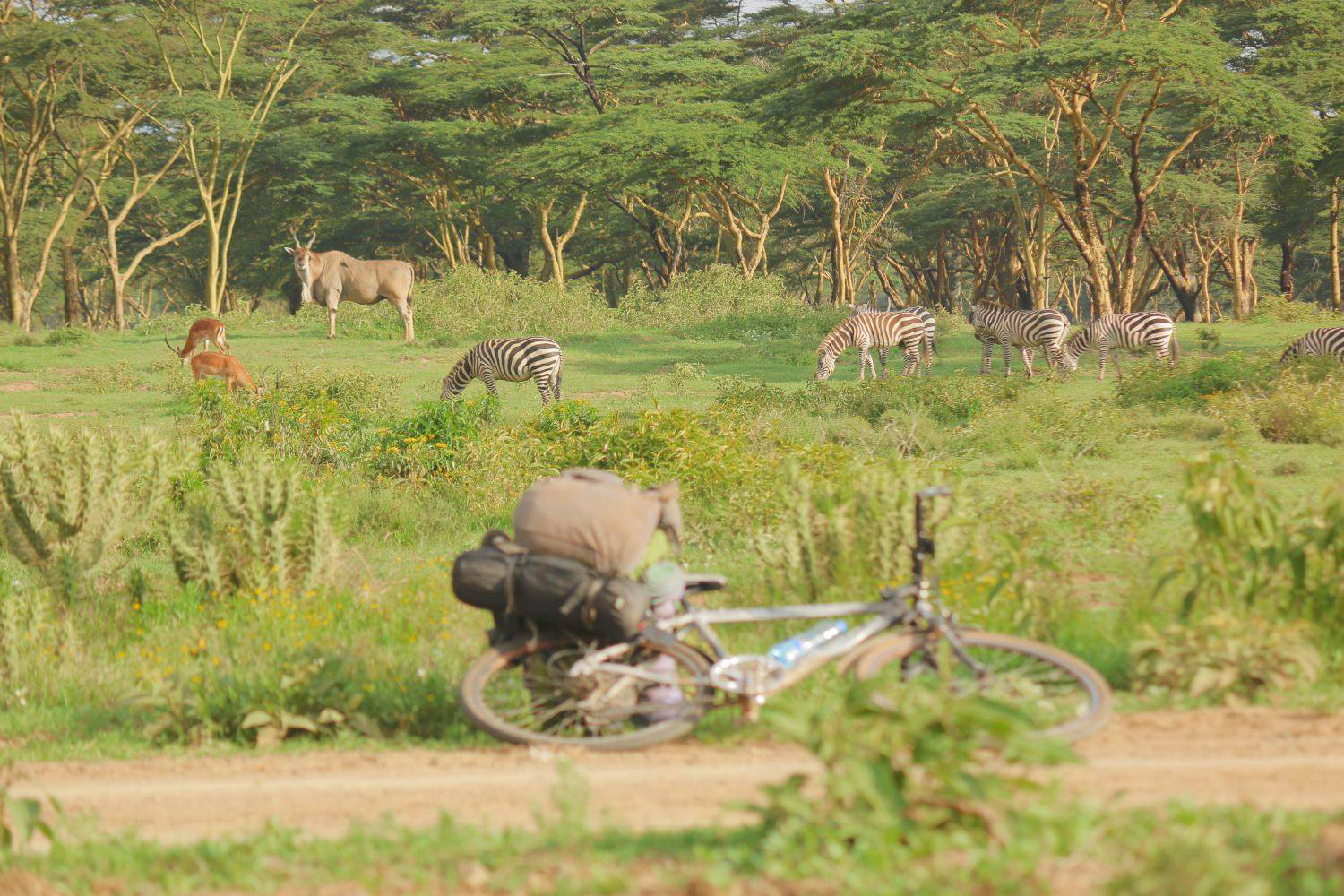
How many countries did you travel through in those 365 days?
I don’t remember the exact number, but I know that there were 48 places in the world and it was 50 flights. Some places were within the same country. In North America, I travelled from New York to Los Angeles and San Francisco. I think it was 30 countries around the world.
It must have been quite challenging. What was your ‘normal’ working day?
Apart from the fact that I spent many days on a plane or moving from one place to another, my day looked like: I arrived at a location, made a plan of what I needed to shoot, loaded my camera and then went to a town. I walked all day with a 360° camera and took special shots. In the evening, I returned to a hotel, and because I was collecting a huge amount of data every day, I had to back up everything, recharge the batteries, but also make a new plan for the next day. I woke up in the morning and my day looked the same as the previous one. So, I had a very busy schedule, but I enjoyed it all. I was constantly on the move, work was so dynamic, new things were constantly happening and I met interesting people. It was an amazing year, one when I didn’t ever stop.
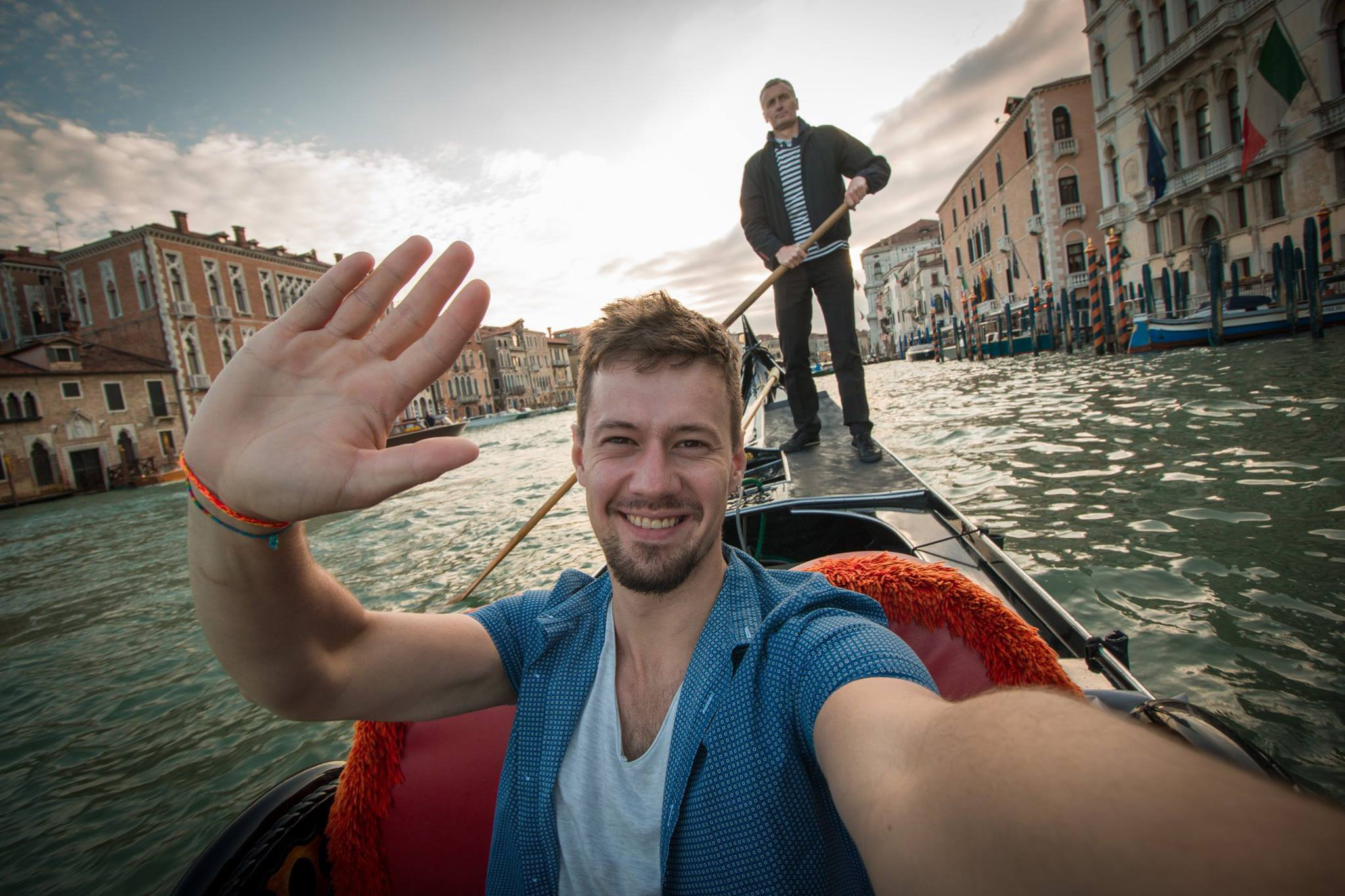
You had a very unusual camera and I heard that it was mistaken for a bomb in Egypt – is that true?
It is! I was using one of the best GoPro Omni cameras at the time. It was basically a big dark cube, composed of six GoPro cameras, and it looks very strange. It looks quite ‘sci-fi’ – for a person who doesn’t know the technology, it looks very unusual.
How I filmed with this camera is also interesting. Firstly, I had to mount the camera on a tripod somewhere in the square and due to the fact that the camera shoots everything (left, right, top and bottom), I also had to run somewhere to hide and control it from a distance. This probably sounds quite funny: getting into the square, putting a weird-looking thing in there, and running away from it with the remote control in my hands.
However, it was not so funny in Egypt. As usual, I came across a market full of people, put the camera on the street, and ran away from it. As I ran, one man grabbed my T-shirt and starting asking me where I was running to and what it all meant. The man was afraid it was a bomb, so I had to explain everything to him. Finally, we had tea and laughed together.
This is probably a difficult question for a traveller, but I will ask anyway. Is there a country or place that has appealed to you the most, through its people, culture or nature?
I’m repeating myself, but Africa touched my heart. I would say that it is about the people, who live much slower lives and are more sensitive. They are so easy-going and smile all the time. The smile is very important. And, of course, nature is beautiful there. Uganda is the closest to my heart out of all the countries I have travelled to in Africa, as it is a very beautiful and safe country with national parks where gorillas live. In addition, English is spoken in Uganda, so there is no problem with communicating.

But I also really like Indonesia. What I find very interesting is that I have a sympathy for those countries that have some bloody history, such as Iran, where people are incredibly hospitable. Furthermore, there are countries like Rwanda or Cambodia, where I had the opportunity to meet very kind and open people who value tourists and interest in their countries. That openness and kindness surprised me a lot, compared to rich Western countries where people are far from so open.
Are you preparing another documentary?
Yes, I am currently processing 360° videos from Latin America, but also a documentary that I was filming in my favourite country, Uganda. The documentary is being made in cooperation with the Czech ZOO Liberec and focuses on the plains zebra, which is on the endangered list in this locality. There are only a few herds left in Uganda. On top of these projects, I am working on another documentary about the return of wolves to the Czech Republic, in cooperation with the Czech University of Life Science in Prague.
Michal, you are one of a few people who have travelled a large part of the world and also managed to document topics and stories that have made people think more about the importance of ecology and the interconnectedness of the Western world with developing countries. As a zoologist, you will know much about the extensive disappearance of rainforests and their animals and other serious environmental problems. But what positive did you take away from your travels, not only as a traveller, but as an ecologist and documentary filmmaker?
I think the traveling influenced me a lot and I saw many positive things, but most positive are the life stories of individual people who decide to do something for our planet and fight for the rights of nature. These specific cases of people are actually the most valuable thing I brought back from my travels, because I know that humanity still has a hope.
There are always people who think for the good of the whole, even when one is often disappointed by how the big corporations do not respect nature, forests or the planet. It is precisely these ‘ordinary’ people, individuals, and non-profit organisations who are fighting and trying to save their little piece of nature. This idea appealed to me and motivates me through its positive energy.
